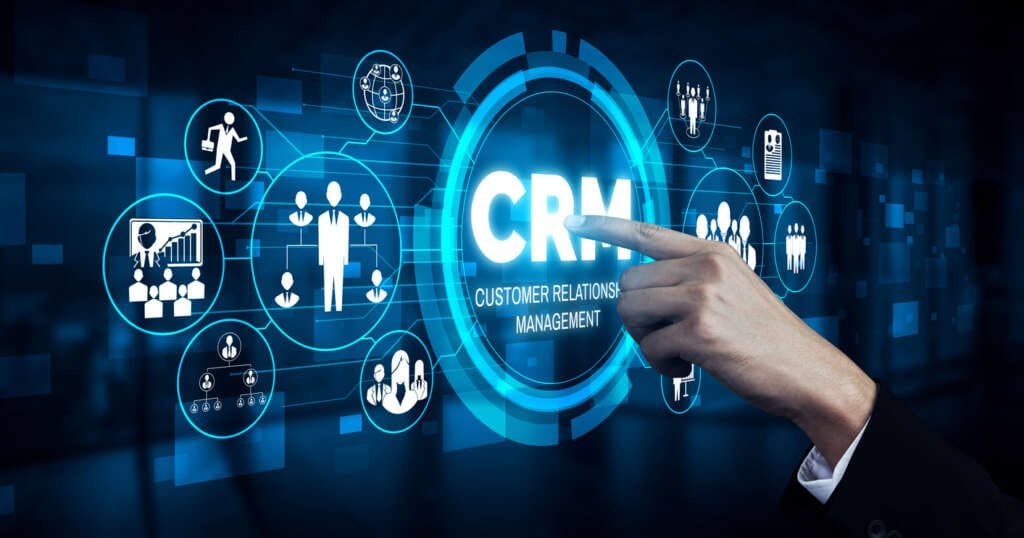
Importance of customer relationship management
In today’s fast-paced and highly competitive business landscape, the importance of effective customer relationship management (CRM) cannot be overstated. As companies strive to attract, retain, and satisfy their customer base, CRM emerges as a pivotal tool for success. CRM goes beyond simply managing customer data; it empowers businesses to understand their customers on a deeper level, personalize interactions, and build long-lasting relationships. By leveraging CRM strategies, businesses can streamline marketing efforts, optimize sales processes, and enhance customer support, all leading to increased customer loyalty and revenue. In this increasingly customer-centric era, embracing CRM becomes a cornerstone for businesses seeking to not only survive but thrive in a dynamic market.
Enhanced customer understanding:
- Gathering and analyzing customer data:
Gathering and analyzing customer data is a fundamental aspect of CRM that involves collecting relevant information about customers’ preferences, behaviors, purchase history, and interactions with the company. This data can be obtained through various channels, such as website analytics, social media, surveys, and customer feedback. By systematically analyzing this data, businesses gain valuable insights into customer trends and preferences, enabling them to make informed decisions to better serve their customers.
- Developing buyer personas and segmentation:
Buyer personas are fictional, generalized representations of ideal customers based on common characteristics, needs, and behaviors. CRM systems facilitate the creation of detailed buyer personas by consolidating and analyzing customer data. Through segmentation, businesses can categorize their customer base into distinct groups based on factors like demographics, behavior, or purchase history. This allows companies to tailor marketing messages and offerings to specific customer segments, increasing the relevance of their communications and improving the overall customer experience.
- Tailoring products and services to meet customer needs:
Armed with a deeper understanding of their customers through CRM insights, businesses can customize their products and services to align with specific customer demands. By identifying pain points, preferences, and unmet needs, companies can innovate and enhance their offerings to better cater to their target audience. This customer-centric approach not only leads to higher customer satisfaction but also fosters brand loyalty and advocacy, as customers feel that their preferences and requirements are being genuinely addressed.
Customer retention and loyalty:
- Building trust and rapport with customers:
Building trust and rapport is a crucial aspect of customer retention and loyalty. Trust is the foundation of any successful relationship, and the same applies to the relationship between a business and its customers. Through consistent and reliable service, delivering on promises, and being transparent in business practices, companies can earn the trust of their customers. Positive interactions, excellent customer support, and addressing customer concerns promptly also contribute to fostering a strong bond and rapport with customers, making them more likely to stay loyal to the brand.
- Personalizing interactions and experiences:
Personalization plays a significant role in enhancing customer retention and loyalty. Customers expect tailored experiences that cater to their specific preferences and needs. CRM systems enable businesses to collect and analyze customer data, allowing them to understand individual preferences and behavior. With this information, businesses can personalize their marketing communications, product recommendations, and customer interactions. Personalization creates a sense of relevance and care, making customers feel valued and understood, which in turn strengthens their loyalty to the brand.
- Implementing loyalty programs and incentives:
Loyalty programs and incentives are effective tools to encourage customer retention and foster brand loyalty. By implementing loyalty programs, companies can reward customers for their repeat business and engagement. These programs can offer discounts, exclusive offers, points-based systems, or access to special events. CRM data helps identify loyal customers, track their engagement, and measure the success of loyalty initiatives. The sense of exclusivity and the tangible benefits gained from loyalty programs incentivize customers to continue choosing the brand over competitors, leading to increased customer retention and long-term loyalty.
Increased customer satisfaction:
- Improving response times and issue resolution:
Timely and efficient response times are crucial for enhancing customer satisfaction. In today’s fast-paced world, customers expect quick answers and resolutions to their queries and issues. CRM systems help businesses streamline their communication channels, enabling them to respond promptly to customer inquiries through various channels like email, live chat, or social media. Additionally, CRM data provides customer service representatives with essential information, allowing them to address issues more effectively, leading to faster problem resolution and improved customer satisfaction.
- Addressing customer feedback and complaints:
Listening to customer feedback and addressing complaints are essential components of improving customer satisfaction. CRM tools help businesses collect and analyze customer feedback from various sources, including surveys, reviews, and social media. By actively engaging with customer feedback, businesses can identify areas of improvement and take corrective actions promptly. This proactive approach demonstrates a commitment to customer satisfaction and builds trust with customers, ultimately leading to increased satisfaction and loyalty.
- Enhancing overall customer experience:
Customer experience encompasses every touchpoint a customer has with a business, from the first interaction to post-purchase support. CRM systems play a vital role in enhancing the overall customer experience by enabling businesses to understand customer preferences, behaviors, and pain points. Armed with this knowledge, businesses can personalize interactions, offer relevant products and services, and create seamless experiences across various channels. A positive and consistent customer experience fosters satisfaction and loyalty, making customers more likely to recommend the brand and become repeat buyers.
Boosting sales and revenue:
- Identifying cross-selling and up-selling opportunities:
Cross-selling and up-selling are powerful strategies to increase sales and revenue from existing customers. CRM systems help businesses track customer purchase history and preferences, enabling them to identify opportunities to offer complementary products or upgrades. By suggesting relevant add-ons or higher-tier options, businesses can increase the average transaction value and enhance the overall customer experience. These tactics not only boost immediate sales but also contribute to higher customer satisfaction and long-term loyalty.
- Nurturing leads and prospects effectively:
Nurturing leads and prospects is a critical process in the sales funnel that converts potential customers into paying ones. CRM tools facilitate lead tracking and automated nurturing workflows, ensuring that leads are consistently engaged and educated about the products or services. By providing valuable content, addressing pain points, and staying in touch with leads, businesses can build trust and credibility, making prospects more likely to convert into customers. Effective lead nurturing optimizes the conversion rate and ultimately contributes to increased sales and revenue.
- Maximizing customer lifetime value (CLV):
Customer Lifetime Value (CLV) is a crucial metric that measures the total value a customer brings to a business throughout their entire relationship. CRM systems help businesses analyze customer behavior and engagement over time, allowing them to identify high-value customers and segments. By focusing on maximizing CLV, businesses can implement strategies to encourage repeat purchases, increase customer retention, and foster brand loyalty. By continuously delivering value, exceptional customer service, and personalized experiences, companies can extend the lifetime value of each customer, ultimately leading to higher sales and revenue over the long term.
Streamlined marketing and sales processes:
- Aligning marketing and sales efforts through CRM data:
CRM data serves as a bridge between marketing and sales teams, facilitating better alignment and collaboration. By sharing customer data, insights, and feedback, both teams can gain a comprehensive understanding of customer preferences and behaviors. Marketing can use CRM data to develop targeted campaigns and content that resonate with the target audience, while sales can access valuable customer information to personalize their interactions and tailor their pitches. This alignment ensures that marketing efforts generate high-quality leads that are more likely to convert, leading to increased efficiency and better overall performance for the business.
- Automating lead generation and nurturing:
CRM systems enable businesses to automate lead generation and nurturing processes, saving time and resources while maintaining consistent engagement with prospects. By setting up automated workflows, businesses can efficiently capture and manage leads, segment them based on their interests and behaviors, and deliver personalized content or follow-up messages. Automated lead nurturing keeps potential customers engaged and informed throughout their journey, guiding them closer to a purchase decision. As a result, sales teams can focus on nurturing qualified leads and converting them into customers, enhancing the overall effectiveness of the sales process.
- Enhancing collaboration and communication between teams:
Effective communication and collaboration are critical for seamless marketing and sales operations. CRM platforms facilitate real-time access to customer data and insights, enabling teams to work together more efficiently. Sales teams can provide feedback to marketing about the quality of leads and customer preferences, while marketing can inform sales about upcoming campaigns or promotions. This collaboration fosters a more customer-centric approach, where both teams can align their strategies to meet the evolving needs of the customers. Enhanced communication through CRM fosters a cohesive and productive work environment, ultimately leading to improved marketing and sales outcomes.
In conclusion, Customer Relationship Management (CRM) emerges as an indispensable asset for businesses in today’s dynamic and customer-centric landscape. By enhancing customer understanding through data analysis, buyer personas, and tailored products, companies can build stronger connections with their target audience. Moreover, effective CRM strategies contribute significantly to customer retention and loyalty by fostering trust, personalizing interactions, and implementing loyalty programs. CRM’s impact extends to increasing customer satisfaction by improving response times, addressing feedback, and enhancing the overall customer experience. Furthermore, businesses can leverage CRM tools to boost sales and revenue through identifying upselling opportunities, nurturing leads, and maximizing customer lifetime value.


